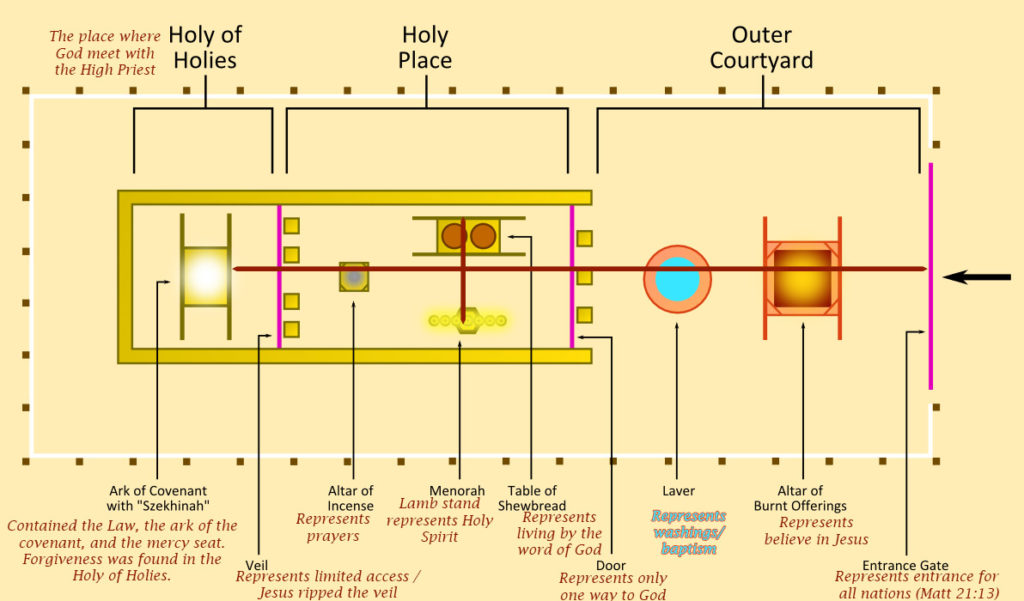
by Equip the Nations | Nov 16, 2018 | Equip The Nations' Blog, Teaching
Unlike many teachers, Jesus taught with questions. In the Gospel of Matthew, Jesus asked more than seventy questions. His questions and the subsequent responses made public His knowledge and exposed Him to attacks. Below is the list of Jesus’ questions. How would you answer them? You are the salt of the earth, but if salt has lost its taste, how shall its saltiness be restored? (Matt 5:13) For if you love those who love you, what reward do you have? Do not even the tax collectors do the same? (Matt 5:46) And if you greet only your brothers, what more are you doing than others? Do not even the Gentiles do the same? (Matt 5:47) Therefore I tell you, do not be anxious about your life, what you will eat or what you will drink, nor about your body, what you will put on. Is not life more than food, and the body more than clothing? (Matt 6:25) Look at the birds of the air: they neither sow nor reap nor gather into barns, and yet your heavenly Father feeds them. Are you not of more value than they? (Matt 6:26) And which of you by being anxious can add a single hour to his span of life? (Matt 6:27) And why are you anxious about clothing? (Matt 6:28) But if God so clothes the grass of the field, which today is alive and tomorrow is thrown into the oven, will he not much more clothe you, O you of little faith? (Matt 6:30) Therefore, do not be anxious, saying, ‘What shall we eat?’ or ‘What shall we drink?’...
by Equip the Nations | Aug 3, 2016 | Equip The Nations' Blog, India Project Information
While living in Chennai, India, a friend took me to visit a ministry that focuses on those who have been diagnosed as having AIDS. This ministry focuses on operating a hospice for women with AIDS - most of them are women who were poisoned with AIDS from their unfaithful husband. This created another problem, orphaned children of former AIDS infected parents no one wanted. They took care of women as they died in their arms and tried to find places for the children. It was an extremely emotionally draining ministry for all involved. The epidemic is wide spread across India. Please click on picture to download HIV and AIDS information for India put together by www.aidsdatahub.org. Some of our teams are focused on helping with this issue. We would like to expand our efforts, but need your support. Tommy and Sonya...

by Equip the Nations | Jun 30, 2016 | Equip The Nations' Blog, Recipies
How To Make Chai Tea DIRECTIONS: YIELD: 2 servings 2 1/2 Teaspoons of Brooke Bond Red Label Loose Tea, Orange Pekoe from India 2 cups water 1 cups whole milk (or substitute unsweetened silk coconut milk, but it won’t be as creamy) 4 1/2 - 6 teaspoons of sugar (or substitute a healthier sweetener, but it is never the same.) OPTIONAL 1 stick cinnamon divided in half and/or 12 Green Cardamom (pressed and cracked) COOKING Bring the water and tea to a boil for two minutes, depending on your taste. Strain and add the sugar. Add the cinnamon, and also the green cardamom if so desired. Simmer milk in another pan and stir. (Add a little more milk for creamier taste.) Mix the pan of tea and milk together by pouring back and forth in the pans four times. Simmer. Makes 2 USA coffee cup servings or 6+ Indian-sized...

by Equip the Nations | Apr 29, 2016 | Equip The Nations' Blog, Equipping, Teaching
The Salvation Process: begins with faith and repentance, and ends in glorification. 1. Repentance means that we “have been saved” from the PLEASURE of sin. It is in the perfect tense. (See Ephesians 2:6-10.) 2. Justification means that we “were saved” from the PENALTY of sin. It is in the past tense. (See Romans 8:24.) 3. Sanctification means that we are “being saved” from the POWER of sin.. It is in the present tense. (See 1 Corinthians 1:18; 2 Corinthians 2:15.) 4. Glorification means that we “shall be saved” from the PRESENCE of sin. It is in the future tense. (See Romans 5:9-10; Romans 10:9; 1 Corinthians 3:15.) Paul sometimes portrayed the process of salvation in terms of past and present experience and future anticipation. For example, he commended the Thessalonians for the testimony of their faith, “how you turned to God from idols [past] to serve the living and true God [present], and to wait for his Son from heaven [future]” (1 Thess. 1:9–10). But usually he referred to only one aspect of salvation in any given verse. JUSTIFICATION – The first phase of the experience of salvation [after repentance] is often called justification. The word refers to the acquittal from the penalty of sin that God gives to those who have faith in Christ (Rom. 3:26). The noun (dikaiōsis) occurs only twice in the New Testament, both times in Paul’s letter to the Romans in relation to the work of Christ and its benefit for Christians (4:25; 5:18). In the use of the verb different temporal aspects of justification are seen. Paul told the Corinthians, for...

by Equip the Nations | Apr 29, 2016 | Equip The Nations' Blog, Equipping, Teaching
INFANT BAPTISM AND THE AGE OF ACCOUNTABILITY “The debate about infant baptism is fundamentally a debate about children, and not really a debate about baptism at all” (287, italics original). Such an approach is likely to perpetuate a glaring—and surely, intolerable—inadequacy of a great deal of Protestant theologizing on infant baptism, from Calvin’s Institutes 4:16 onwards, namely, its marginalizing a much of the NT’s explicit witness to baptism. The result is evident in Reformation orders of service for infant baptism from Edwardian England and Knox’s Scotland. (Wright, D. F. (2005). Review of The Case for Covenantial Infant Baptism Edited by Greg Strawbridge. Themelios, 30(3), 116.) Where to Begin? God states in His Word: “The Wages of Sin is Death” Romans 6:23a Is Romans 6:23 for everyone at every age? Does a person has to reach an age of accountability for God sin to be counted towards him or her? Is Romans 6:23 for everyone regardless of age? Because of Adam’s sin, all of mankind is born in a sinful world separated from God. Psalm 58:3 “The wicked are estranged from the womb; These who speak lies go astray from birth.” Ephesians 2:3 “…were by nature children of wrath…” Romans 5:18 “So then as through one transgression there resulted condemnation to all men…” Let’s ask some questions and look at what the Bible has to say. Then you decide. 1. Can parents do anything to help ensure their child’s salvation? “And when eight days had passed, before His circumcision, His name was then called Jesus, the name given by the angel before He was conceived in the womb. And when...

by Equip the Nations | Apr 28, 2016 | Equip The Nations' Blog, Equipping, Teaching
Baptism in Christ Jesus Jesus’ Teachings on Baptism. Jesus rarely spoke directly of baptism. However, in the Great Commission He calls the apostles to make disciples of all nations and baptize in the name of the Father, the Son, and the Holy Spirit (Matt 28:18–20). Early Christians came to see this Trinitarian formula as essential to a properly administered baptism. Elsewhere Jesus refers to His death on the cross in terms of baptism (Mark 10:38–39; Luke 12:50). Baptism in Acts. Early Christians baptized converts to the faith to signal their entrance and initiation into the Christian community (e.g., Acts 2:38–41; 8:4–13, 34–38; 9:17–19; 10:44–48; 16:11–15, 25–34). Baptism seems to have been associated with repentance, forgiveness of sins, and the bestowal of the Holy Spirit, but not in any sort of systematic way. For instance, in Acts, the Holy Spirit is sometimes given concurrently with baptism (Acts 2:38–41), sometimes before baptism (Acts 10:44–48), and sometimes after baptism (Acts 8:4–17). The connection between baptism and the Holy Spirit seems to trace back to John’s promise that though he baptized with water, Christ would baptize with the Holy Spirit (Matt 3:11; Mark 1:8; Luke 3:16; John 1:29–34; see also Acts 1:5; Schoonenberg, “Le Baptême d’Esprit-Saint,” 74–75; Lampe, Seal of the Spirit, 44–46; Kavanagh, Shape of Baptism, 17; Kavanagh believes that the early church’s experience of Pentecost shaped its interpretation of Jesus’s baptism). Baptism seems to have been closely associated with the preaching of the gospel: Peter directs those who believe his preaching to be baptized (Acts 2:38), and Philip’s gospel proclamation leads the Ethiopian eunuch to request baptism (Acts 8:34–36). Baptism in...






